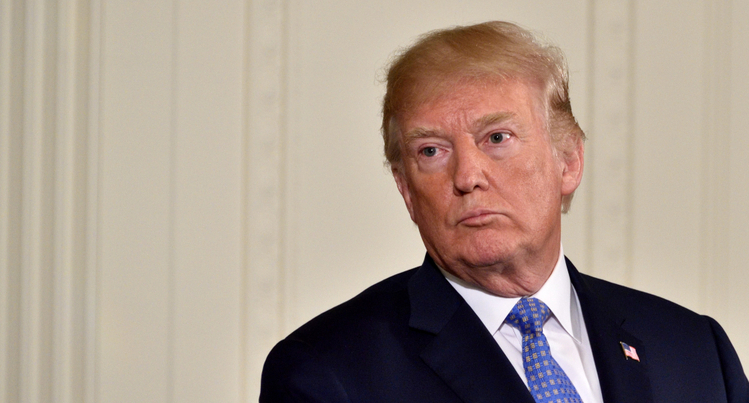Trump administration had statutory authority to expedite California border wall, 9th Circuit rules

President Donald Trump. Shutterstock.
A federal appeals court has ruled 2-1 that the Trump administration had statutory authority to expedite construction of a border wall and repair existing barriers between California and Mexico.
The San Francisco-based 9th U.S. Circuit Court of Appeals ruled Monday that the project was authorized by the plain language of the 1996 Illegal Immigration Reform and Immigrant Responsibility Act, report the Recorder, Courthouse News Service and Bloomberg News.
The appeals court said a federal judge had properly dismissed environmental claims raised by the plaintiffs because the secretary of the Department of Homeland Security had issued waivers of environmental laws.
The 9th Circuit ruled in consolidated suits filed by the Center for Biological Diversity, Defenders of Wildlife, the Sierra Club, the Animal Legal Defense Fund, the state of California and the California Coastal Commission.
The decision upholds part a February 2018 ruling by U.S. District Judge Gonzalo Curiel, who said the immigration law appeared to be constitutional, and the Department of Homeland Security didn’t exceed its delegated powers when it issued the waivers.
The appellate decision was limited because of IIRIRA provisions restricting appellate court jurisdiction. The plaintiffs’ constitutional claims may be reviewed on appeal only by the U.S. Supreme Court, the 9th Circuit said. Nor is there jurisdiction to review challenges to waivers of environmental laws, the appeals court said.
But a court majority said it had jurisdiction to review the Department of Homeland Security’s authority to build the prototype and repair the fencing. The majority also said it had jurisdiction to review environmental claims to the extent that they don’t arise from waiver determinations.
The border projects are authorized under the immigration law’s “broad grant of authority,” and the environmental claims are precluded by waiver determinations, the appeals court majority concluded.
A dissenter said the law barred any review by a federal appeals court and only the U.S. Supreme Court could grant review.



